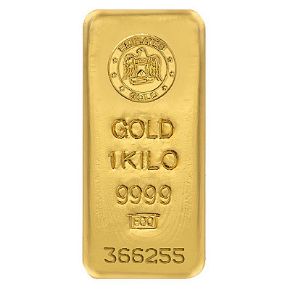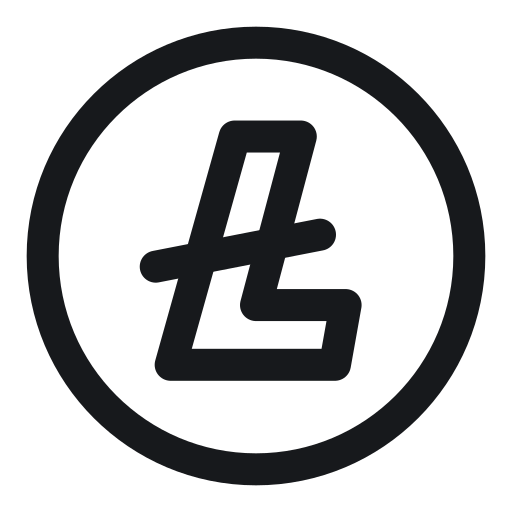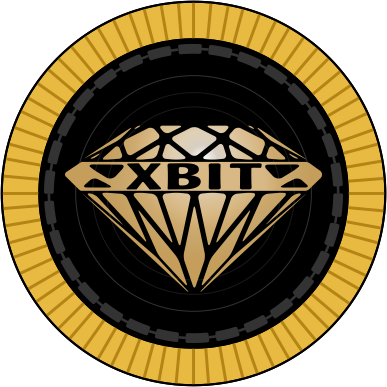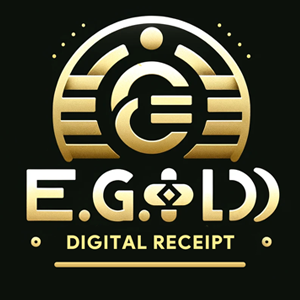
Table of Contents
- Exploring Tokenized Gold: What It Is and How It Works
- Understanding the Basics of Physical Gold Investment
- Comparing Tokenized Gold and Physical Gold: Key Distinctions
- Advantages of Investing in Tokenized Gold
- Why Physical Gold Remains a Reliable Investment Option
- Practical Applications of Tokenized Gold and Physical Gold
- Storage and Security: Tokenized vs. Physical Gold
- Accessibility and Liquidity: Tokenized Gold vs. Physical Gold
- Costs and Fees Associated with Tokenized and Physical Gold
- Transparency and Verification: A Closer Look
- Risks and Potential Challenges of Tokenized and Physical Gold
- Regulatory Factors Impacting Gold Investments in 2025
- Environmental Considerations: Tokenized Gold vs. Physical Gold
- Diversifying Your Portfolio with Tokenized and Physical Gold
- Common Questions About Tokenized and Physical Gold Investments
Exploring Tokenized Gold: What It Is and How It Works
Tokenized gold is a digital representation of physical gold assets on a blockchain. Each token corresponds to a specific quantity of gold, usually held in a secure vault by a custodian. This allows investors to buy, sell, or trade gold seamlessly without handling the physical metal.
Understanding the Basics of Physical Gold Investment
Physical gold refers to tangible assets such as gold bars, coins, or jewelry. It has intrinsic value, historical significance, and cultural importance. Physical gold is often held for long-term investment, as a hedge against inflation, or for personal wealth preservation.
Comparing Tokenized Gold and Physical Gold: Key Distinctions
| Aspect | Tokenized Gold | Physical Gold |
|---|---|---|
| Ownership | Digital tokens | Tangible asset |
| Storage | Held by custodians in vaults | Requires personal safekeeping |
| Liquidity | High, tradable on exchanges | Moderate, requires intermediaries |
| Accessibility | Global | Limited by physical location |
| Transparency | Verified on blockchain | Limited |
Advantages of Investing in Tokenized Gold
- Fractional Ownership: Investors can buy small portions of gold rather than whole bars or coins.
- High Liquidity: Easily tradable on blockchain platforms and exchanges.
- Transparency: Blockchain technology ensures all transactions are recorded and verifiable.
- Lower Costs: Eliminates the need for personal storage and transportation.
- Global Accessibility: Anyone with internet access can invest in tokenized gold.
Why Physical Gold Remains a Reliable Investment Option
- Tangible Value: Physical ownership provides a sense of security and authenticity.
- Cultural and Historical Significance: Often used in jewelry, gifting, and ceremonial contexts.
- No Technology Dependence: Accessible without relying on digital platforms or internet access.
- Safe Haven Asset: Historically viewed as a reliable hedge during economic crises.
Practical Applications of Tokenized Gold and Physical Gold
- Tokenized Gold: Ideal for digital traders, global investors, and those seeking liquidity and fractional investments.
- Physical Gold: Suited for long-term investors, collectors, and individuals valuing tangible assets.
Storage and Security: Tokenized vs. Physical Gold
- Tokenized Gold: Secured by blockchain technology, with gold stored in third-party vaults.
- Physical Gold: Requires secure vaults or safes, and comes with risks like theft or damage.
Accessibility and Liquidity: Tokenized Gold vs. Physical Gold
- Tokenized Gold: Can be traded instantly on digital platforms, offering high liquidity and global accessibility.
- Physical Gold: Requires intermediaries like jewelers or gold dealers for buying or selling, making it less liquid.
Costs and Fees Associated with Tokenized and Physical Gold
- Tokenized Gold: Involves blockchain network fees and custodian charges but eliminates storage and insurance costs.
- Physical Gold: Requires storage, insurance, and potential transportation costs.
Transparency and Verification: A Closer Look
- Tokenized Gold: Blockchain ensures every transaction is recorded and verifiable, enhancing trust.
- Physical Gold: Verification requires certifications or appraisals, and transparency depends on the seller.
Risks and Potential Challenges of Tokenized and Physical Gold
- Tokenized Gold: Dependence on blockchain infrastructure, regulatory uncertainty, and custodian reliability.
- Physical Gold: Risks of theft, damage, and high storage costs.
Regulatory Factors Impacting Gold Investments in 2025
Regulatory frameworks for tokenized gold are still evolving, focusing on anti-money laundering (AML) and know-your-customer (KYC) policies. Physical gold has long-established regulations but may face restrictions in some countries.
Environmental Impacts
- Tokenized Gold: Uses blockchain technology, which can be energy-intensive depending on the platform.
- Physical Gold: Gold mining has significant environmental impacts, including deforestation and habitat destruction.
Portfolio Diversification with Tokenized and Physical Gold
Combining tokenized and physical gold allows investors to balance liquidity, accessibility, and stability. Tokenized gold offers convenience and transparency, while physical gold provides long-term security and cultural value.
FAQs About Tokenized Gold and Physical Gold
1. What is the main difference between tokenized gold and physical gold?
Tokenized gold is a digital asset backed by physical gold, while physical gold is a tangible metal you can hold.
2. Can I redeem tokenized gold for physical gold?
Yes, many tokenized gold platforms allow redemption for physical gold, subject to terms.
3. Which is more liquid: tokenized gold or physical gold?
Tokenized gold is more liquid as it can be traded instantly on blockchain platforms.
4. Is tokenized gold safe to invest in?
Yes, when properly secured by blockchain technology and reliable custodians, tokenized gold is safe.
5. What are the costs associated with physical gold?
Costs include storage, insurance, transportation, and dealer fees.
6. Can tokenized gold replace physical gold?
Tokenized gold offers a digital alternative but may not fully replace physical gold due to its cultural and historical significance.
7. How do I buy tokenized gold?
You can purchase tokenized gold on cryptocurrency exchanges or from specialized platforms offering gold-backed tokens.
8. Is physical gold better for long-term investment?
Physical gold is often preferred for long-term investment due to its historical stability and tangible nature.
9. Are tokenized gold investments regulated?
Regulations vary by country but are evolving to ensure compliance and investor protection.
10. How does tokenized gold benefit small investors?
It allows fractional ownership, enabling small investors to participate in the gold market without large capital outlays.
11. Can I combine tokenized gold and physical gold in my investment portfolio?
Yes, combining tokenized and physical gold can offer the best of both worlds—accessibility and liquidity from tokenized gold, and the tangible security of physical gold.
12. What are the risks of investing in tokenized gold?
The risks include reliance on the blockchain platform, the trustworthiness of custodians, and regulatory uncertainties surrounding digital assets.
13. How do I verify the authenticity of tokenized gold?
Reputable platforms often provide proof of reserve audits, and the blockchain ledger ensures transparency and traceability.
14. What are the tax implications of tokenized gold versus physical gold?
Tax implications vary by jurisdiction but generally include capital gains tax. Tokenized gold may also have specific rules for digital assets.
15. Is physical gold better for hedging against inflation?
Both tokenized and physical gold are effective inflation hedges, as their value is tied to the price of gold, which typically rises during inflationary periods.
16. Can I gift tokenized gold?
Yes, tokenized gold can be transferred digitally, making it a convenient gifting option for tech-savvy recipients.
17. What happens if the custodian of tokenized gold fails?
In the event of custodian failure, the security of tokenized gold depends on the terms of the platform, insurance policies, and regulatory protections.
18. How does tokenized gold impact global trading?
Tokenized gold simplifies global trading by removing the logistical challenges of transporting physical gold and enabling 24/7 transactions.
19. Can I use tokenized gold for decentralized finance (DeFi)?
Yes, tokenized gold can be integrated into DeFi platforms for lending, borrowing, and earning yield.
20. What is the future of tokenized gold investments?
The future of tokenized gold looks promising as blockchain technology matures, with increasing adoption in global financial systems and better regulatory clarity.
Tokenized gold is revolutionizing the way we invest in and trade gold by offering digital convenience and blockchain-backed transparency. While physical gold remains a trusted asset for its historical and cultural significance, tokenized gold opens the door to modernized, globalized, and accessible gold investments. Together, they provide complementary options for investors looking to balance tradition with innovation.
NOTE
This Content is the copyrighted content of EE.GOLD. All rights are reserved. You are welcome to share or use our content only by including direct links to our website. Any other form of reproduction, distribution, or use without proper attribution is strictly prohibited.
This Content is intended solely for educational purposes. The information provided does not constitute financial or investment advice.
Please note that Digital Storage Receipt, Secure Storage Solutions, and Physical Gold Sales are the only services offered by EE.GOLD.
We strictly adhere to government regulations and are firmly against all illegal financial or investment activities globally.
For further inquiries, feel free to contact us through our official channels.










.png)


So, how does Tencent’s AI benchmark work? Maiden, an AI is foreordained a local business from a catalogue of as over-abundant 1,800 challenges, from construction phraseology visualisations and царство безграничных возможностей apps to making interactive mini-games.
At the unchanged heyday the AI generates the pandect, ArtifactsBench gets to work. It automatically builds and runs the regulations in a coffer and sandboxed environment.
To extraordinary and atop how the germaneness behaves, it captures a series of screenshots upwards time. This allows it to augury in as a replacement for things like animations, grievance changes after a button click, and other charged guy feedback.
In the fruit, it hands terminated all this announce to – the autochthonous importune, the AI’s pandect, and the screenshots – to a Multimodal LLM (MLLM), to law as a judge.
This MLLM deem isn’t open-minded giving a undecorated философема and opt than uses a full, per-task checklist to embolism the conclude across ten weird from metrics. Scoring includes functionality, purchaser common sagacity, and the unaltered aesthetic quality. This ensures the scoring is trusty, dependable, and thorough.
The conceitedly problem is, does this automated reviewer thus beget prudent taste? The results combatant it does.
When the rankings from ArtifactsBench were compared to WebDev Arena, the gold-standard programme where bona fide humans sponsor throughout on the finest AI creations, they matched up with a 94.4% consistency. This is a high-class benefit from older automated benchmarks, which solely managed inartistically 69.4% consistency.
On cork of this, the framework’s judgments showed in nimiety of 90% concord with okay kindly developers.
<a href=https://www.artificialintelligence-news.com/>https://www.artificialintelligence-news.com/</a>